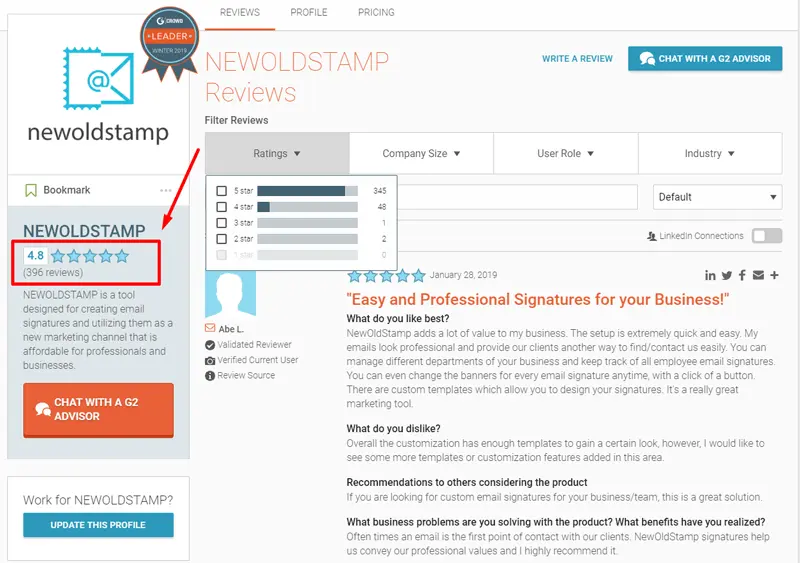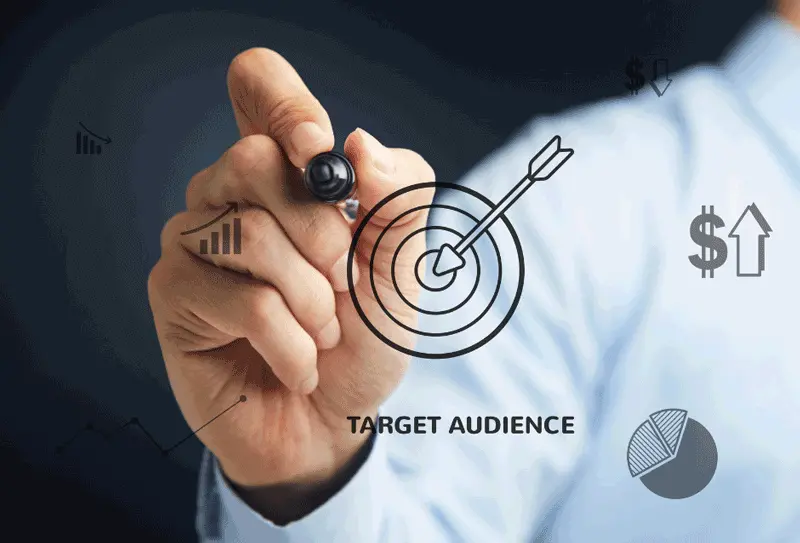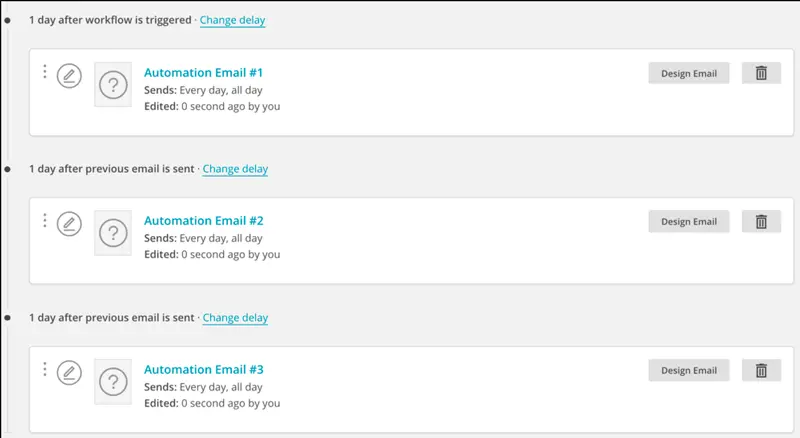How to Build Relationship with Customers
1. What is business development
2. Business development vs. marketing and sales
3. Business development strategies
4. How to build relationships with clients that last
5. Business development tips
Useful tools:
1. Newoldstamp - Email signature marketing
2. Mailchimp - Email builder and sender
3. Reply.io - Personal email outreach, calls, and tasks
4. RocketLink - Your branded short linker
5. Canva - Online tool for making designs
A good business development professional is a cornerstone of any successful company because they ultimately contribute to generating revenue and help a business to grow. Wait. But what do they actually do?
What is business development
via GIPHY
Business development is a set of activities aimed at identifying the best opportunities to grow your business. Also, business development can be described as connecting similar businesses to reach similar goals.
Business Development vs. Marketing and Sales
Although business development (BD) and sales are often used interchangeably or grouped together, they are not one and the same thing. Let’s talk about the difference between sales, marketing, and business development.
While marketing is everything that you do to attract a customer, sales are more about direct selling a product or service to a customer. Marketing people work on branding, online presence, creation & publication of promotional materials, etc. with the goal of attracting more leads. Sales are about dealing with opportunities that walk in the door and effectively closing them. And BD is about finding opportunities and bringing them to the table. Business developers try to uncover opportunities and create partnerships that may drive revenue or improve the product/service.
You may also like:
“How to Write a Compelling Business Request Letter to Reach Your Goal Faster.”
Business Development Strategies
There are different strategies you can use when developing business. Let's take a look at some common business development activities you can bring into your firm.
-
Networking
You probably know that the person (or team) in charge of business development often attends many industry events, lunches, and so on. That’s where they can network with the target audience and build potentially beneficial and strong relationships. However, keep in mind that good business developers approach networking more as a way to practice building relationships with clients rather than selling.
-
Free consultations and demos
For instance, if you're running a new recruitment agency and it's time to take a job order and lock business with a potential client, you could give them a free recruiting consultation. In fact, you can make your own consultation much smoother by signing up for a free demo of a well-featured Applicant Tracking System and CRM software to showcase how well you're going to parse resumes, source the right candidates and meet their goals. These are the times when free consultations and demos come in handy as a business development strategy.
If you want to prove that your product is meaningfully superior to the competitor's product, let people see it in action. A good business developer knows the product well and can demonstrate it from the best side. BD professionals can provide in-person consultations, product demos, and answer any product related questions.

image source: marketo
-
Sponsorships
Sponsorship is a worthy thing to include in your strategic business plan. Since it is aimed at creating awareness and affinity, it can help you generate a positive reaction to your brand and increase your sales in the future.
-
Speaking at events
Speaking at conferences and events is an excellent opportunity to introduce your business and demonstrate your expert knowledge, thought leadership and credibility.

source: websummit
-
Use content to build expertise
A business development professional writes books, blog posts, and articles performs at conferences and takes part in relevant industry associations to be perceived as an expert in their field. Consider working on:
- Blogs
- Videos
- Professional social media
How to build relationships with clients that last
We all know that strong relationships are critical to business success (which is true for large, middle, and small businesses), but in today’s professional world they just don’t happen and develop without the dedication and continuing effort. Here is how to learn the art of building relationships:
-
Treat each client as an individual
Each client is unique. While one is a huge fan of Rihanna, the other is a dad of five kids. If you know your client as a fan of some musician, you may email them the latest news about the upcoming tour; or if you know your customer is a parent, you may ask how their kids are doing.
Related: “Tips and Examples of the Best Personalization for Email Marketing.”
-
Communicate, not sell
To build a strong and lasting relationship, people must trust each other. And if you are always trying to sell something, it will be just like any other advertising, and people will quickly notice your intentions. Don't sell, discuss and solve real customer issues instead.
-
Find common interest behind the work
It's fantastic to do something you like with people you like, isn't it? Furthermore, shared interests will allow you to develop closer-knit relations and generate referrals & introductions.
-
Invite your customers for coffee
If you don't know where to start, offer clients/partners to go for coffee so that you can communicate more personally and get to know each other. You may also write to your clients on social media and schedule a call.
-
Keep your clients up to date
Get in touch with your customers to provide updates about how things are going. Even if something went wrong, don't avoid them. Honesty, care, and responsibility will make you the best!
-
Ask for feedback
Client feedback is critical for the success of any company. When collected and implemented properly, it can provide the best possible experience for a company and customers alike.

source: G2crowd platform
You may also like: “How to Develop a Customer Review Strategy and Use it as an Integrated Part of Your Marketing and Sales.”
-
Provide and ask for referrals
When it comes to purchasing decisions, people are more likely to trust a referral from their friends and colleagues. Most companies assume that if a satisfied customer knows of someone who needs their services, the client will definitely refer them. Unfortunately, this happens less often than we may expect. People being asked are probably busy professionals, and keeping your business in mind for a referral is not likely to be their first priority. Instead of wasting this excellent opportunity, simply ask for referrals and express your willingness to provide referrals too.
-
Be the first to offer help
To establish business relationships with customers, be sure to offer them your help first, and they will return the favor.
Business Development Tips
Want some more tips to improve your small business development strategy? Here you go.
-
Spend time on defining your audience
If you want to have success in developing your company, you need to know who you're trying to attract as customers. Be sure to focus on your best-fit clients, not all possible prospects. It is best to focus on a narrow target group. However, don’t go so narrow that you can’t achieve your business goals.

-
Research their behavior and interests
The more information about the ideal client you get, the better chances you will have to draw their attention and convey how you can help them. First, find out what their critical business issues are. Then make sure that your expertise is relevant to those issues. Also try to figure out where they seek advice and inspiration, what the competitive environment is, and how you measure up.
-
Reach out by yourself to important clients
Of course, you can't talk personally to all your clients. To make things easier and save time, you can use automation. But it's not advisable to automate all communications. Determine the most valuable customers and reach out to them at least once a month.
Additionally, you can use an email signature builder like Newoldstamp to ensure that every automated email still reflects a consistent, professional brand image.
-
Use automation for less important clients
Nurturing business relationships is not easy if you have a long list of contacts in your CRM. Here is when email marketing automation comes into play. Set up email sequences that will regularly send out emails to your contacts. Be sure to deliver only valuable and relevant content.

source: mailchimp
Conclusion
To become successful even in a small business, you need to learn how to build client relationships with a broad range of people, including investors, employees, partners, and of course clients. Unfortunately, many people who are good at inventing things, often lack interpersonal skills. Business development professionals are usually great at communicating with customers, but each of us can also learn the art of building business relationships too.
For a better relationship with anyone in business, do the following things:
- Network (I can recommend you to read “Never Eat Alone” - a guide to networking by Keith Ferrazzi because it changed how I went about communicating with people.)
- Treat each client as an individual
- Write and speak to demonstrate your expertise
- Play on your interests to inspire trust
- Ask for feedback and improve
- Offer your help.



